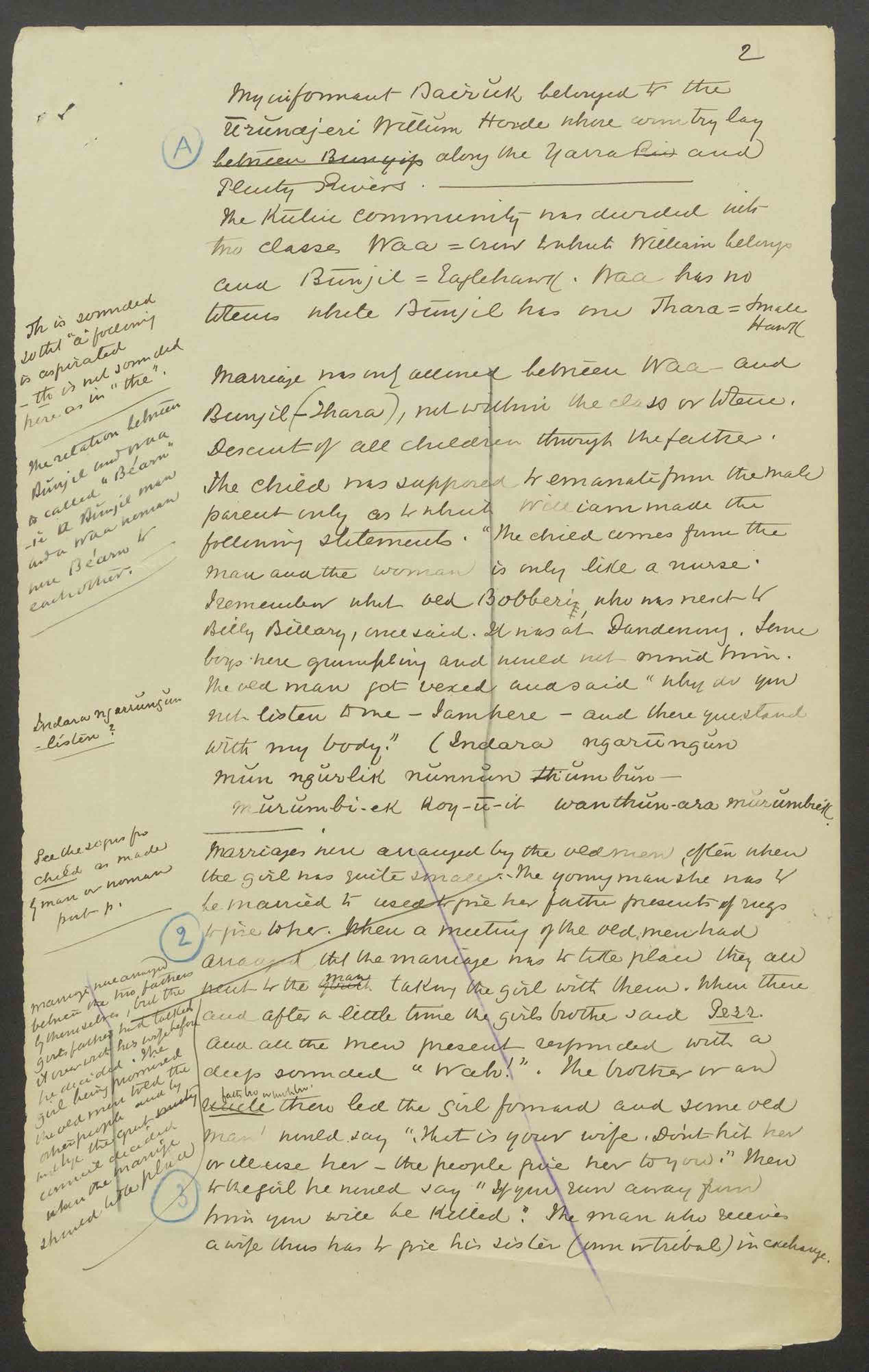Notes by Howitt on Kulin from Barak

Transcription - Page 3
2
A
My informant Bairŭk belonged to the
Ūrŭndjeri Willŭm Horde whose country lay
[between Bunyip- crossed out] along the Yarra [Riv - crossed out] and
Plenty Rivers. ————
The Kūlin community was divided into
two classes Waa = crow to which William belongs
and Būnjil = Eaglehawk. Waa has no
totems while Bunjil has one Thara = small Hawk
[Margin Text:]
Th is sounded
so that “a” following
is aspirated
– th is not sounded
here as in “the”.
[Margin text]
The relation between
Bŭnjil and Waa
is called “Béarn”
– i.e a Bŭnjil man
and a Waa woman
were Béarn to
each other.
Marriage was only allowed between Waa and
Bunjil (-Thara), not within the class or totem.
Descent of all children through the father.
The child was supposed to emanate from the male
parent only as to which William made the
following statements. “The child comes from the
man and the woman is only like a nurse.
I remember what Old Bobberi, who was next to
Billy Billary, once said. It was at Dandenong. Some
boys were grumbling and would not mind him.
The old man got vexed and said "Why do you
not listen to me - I am here - and there you stand
with my body." (Indara ngarūngŭn
mŭn ngŭrlik nŭnnŭn thŭm bŭn –
mŭrŭmbi-ek koy-ū-it wanthŭn-ara mŭrŭmbiek
[Marginal Text:]
Indara ngarrŭngŭn –
listen ?
[Marginal text]
See the signs for
child [underlined] as made
by man or woman
put p.
Marriages were arranged by the old men, often when
the girl was quite small. The young man she was to
be married to used to give her father presents of rugs
to give to her. When a meeting of the old men had
arranded that the marriage was to take place they all
went to the [youth - crossed out] man taking the girl with them. When there
and after a little time the girl's brother said Prrr [underlined]
and all the men present responded with a
deep sounded "Wah!" The brother or an
[uncle - crossed out] father's brother or mother's brother then led the girl forward and some old
man would say “That is your wife. Don’t hit her
or ill use her – the people give her to you”. Then
to the girl he would say “If you run away from
him you will be killed”. The man who receives
a wife thus has to give his sister (own or tribal) in exchange.
[Marginal Text:]
2
Marriages were arranged
between the two fathers
by themselves, but the
girl's fathers had talked
it over with his wife before
he decided. The
girl being promised
the old men told the
other people and by
and bye the great [meeting -crossed out]
council decided
when the marriage should take place.
3
Document Details
